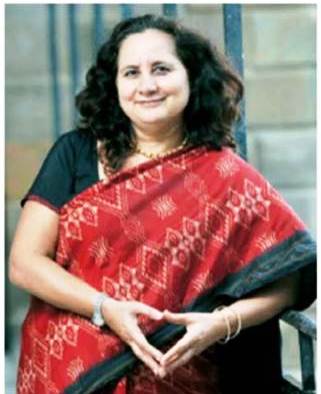What Women in India Want, Think & Do to Succeed (PT 1)
As India surges forward on many fronts, does it take its women along with it?
In this 3-part series, Ritika Bajaj asked this question and more to three distinguished women from diverse professional spheres. Here you will read their candid, diagnostic and reflective answers about the travails and triumphs of women working in India. Neera Saggi, Dharmendar Kanwar and Freyaz Shroff talk about their own survival strategies and mantras on success as they provide valuable insights to other women who want to grow their own careers and still retain their individual identities…

Neera Saggi was a member of the Indian Administrative Service for 28 years. She worked with the government in different sectors including health, commerce, shipping and ports.
Presently, she is the Chief Executive of L&T Seawoods Pvt. Ltd. (LTSPL), a billion dollar infrastructure and construction project in Navi Mumbai, India.
As president of the Bombay Chamber of Commerce and Industry (2013-2014), Neera recently launched Fempower, an association of business and entrepreneurial women focussing on mentoring, networking and advocacy.
Challenges faced by Indian working women:
NS: Job opportunities in the organised sector are gradually dwindling and thus women are moving towards starting their own enterprises. Statistics also show that fewer percent of women in India are employed in the workforce as compared to a decade ago. Even mid-level management is not reaching the top and the representation at the board level is minimal. This is largely due to the fact that there are not many enablers to support women in the workplace. Women should not have to conform to the workplace; it should in fact be other way around. In my early years, I too faced a lot of issues balancing the domestic front with my career; bringing up children and staying away from home can be trying.
Opportunities vis-a-vis other countries:
NS: In India, the government and the legislature in particular give equal opportunity to women and even ensure wage parity. So “technically” there is no discrimination of women at the workplace. Since India is developing fast, various sunrise industries will open up and make it possible for more women to enter the workforce. Personally in my career, the government was a good employer and gave me enough flexibility to manage the home and career. Later, the opening up of the infrastructure sector helped me move from a government job to private industry. Initially, for a woman, there is a sense of indulgence rather than acceptance to their careers, but once you have reached a certain level, acceptance does follow.
Speaking out, being heard:
NS: Today, intellectual honesty is equally important as financial honesty. To speak out is essential but the tone has to be moderated. It’s important not to say what others want to hear. But how you say it is crucial. You must always be who you are or else at some point you will fall apart.
Promotional tools used:
NS: I joined the Bombay Chamber of Commerce and Industry to understand different sectors and their areas of concern. This helped me grow myself and my network. I strongly believe that women should focus on networking just like men do and thus launched FemPower, a woman’s forum in the city. One must meet new people and interact beyond your immediate circle and milieu. At a social event, I always reach out to people I don’t know. Attending seminars as a delegate or speaker, being a part industry forums and the use of social media are other ways of creating awareness about your work.
Top 3 Success Mantras
- Gain knowledge: It’s important to continuously gain knowledge and understand an area, a subject or an organisation to succeed.
- Expand horizons: I’m always going beyond my immediate sphere of work and meeting with people from all walks of life.
- Take chances: I have not been restricted by one career path and often looked at other opportunities. I take risks when needed and this gives me a sense of confidence and adds to me as a person.
Read PART 2: Interview with writer, heritage conservationist and tourism promoter – Dharmendar Kanwar.
Read PART 3: Interview with the founder of strategy consulting firm KurNiv Success Solutions – Freyaz Shroff.